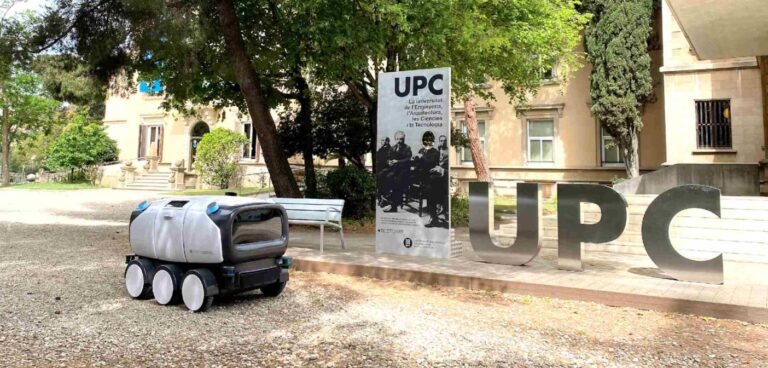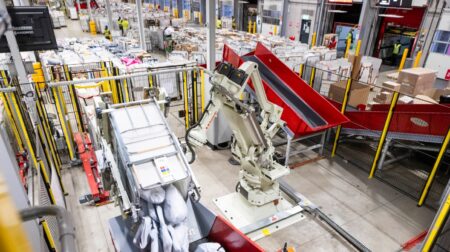Researchers from Barcelona’s Universitat Politècnica De Catalunya (UPC) have worked alongside a team from Robotics and Industrial Informatics (IRI) to design and manufactured a prototype of an autonomous delivery robot, which will be put to the test this year.
The Autonomous Delivery Device (ADD) project aims to analyse how autonomous delivery devices can improve the urban distribution of goods as a whole, quantify the potential impacts and test them in real city environments.
UPC’s future mobility research hub has worked on the prototype since 2018. It has six wheels, runs at a maximum speed of 20km/h, measures 170cm x 110cm x 100cm and can go up or down steps up to 20cm high.
While IRI, a joint centre made up of the UPC and the Higher Council for Scientific Research (CSIC), is working on the robot’s sensors.
Different studies have been carried out on the second uses that these vehicles can have. It was concluded that the ADD, in addition to the distribution tasks, could analyse the quality of the pavement or the air thanks to the data that comes from the vehicle’s sensors, together with a computer vision algorithm.
This year, the ADD will be tested in three real environments: initially in Barcelona, then in Hamburg, Germany and in Debrecen, Hungary. These activities will be carried out within the framework of the ‘Logismile’ project, which started in January, financed by the EIT Urban Mobility to promote more sustainable and liveable urban spaces.








